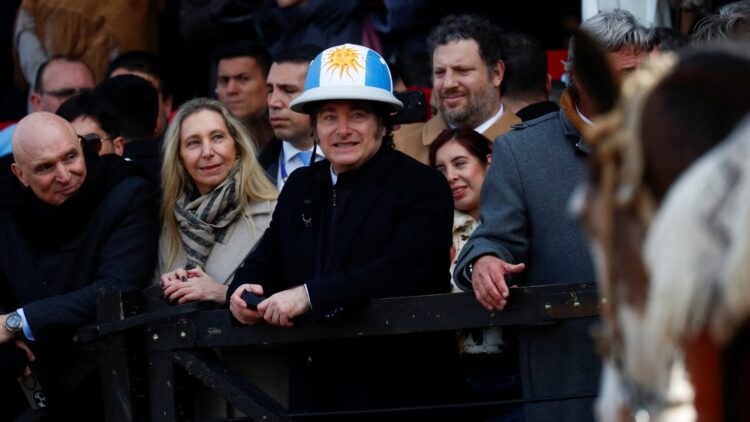The situation in Argentina is complicated. The current electoral race will serve not only as a test of Javier Milei’s popularity, but also as an important barometer for measuring popular acceptance of the president’s radical economic agenda. The country is torn between relief over falling inflation and the burden of budget cuts, and the outcome of the upcoming votes, especially in Buenos Aires, could determine the president’s political strength ahead of the national elections in October.
Milei faces strategic challenge in Buenos Aires elections
Argentina’s wild-haired, firebrand President Javier Milei will face a crucial litmus test in an upcoming local election that could derail ambitious economic reforms as his austerity-fueled experiment fuels social tensions. Milei has been able to tame runaway inflation with a ruthless austerity plan and he aims to keep his unorthodox economic experiment going by generating more investor confidence and blocking any laws that the current opposition-controlled Congress could pass that would affect the country’s finances.
That plan hinges on an electoral victory in the October midterms. While the October outlook is favorable for Milei, analysts say a local election in the province of Buenos Aires on September 7 could pose a challenge to the radical right-wing leader. His party will be up against the powerful center-left Peronists on their home turf, which they currently govern and which is also home to 40% of the country’s voters.
“The only question mark is the province of Buenos Aires,” said Lucas Romero, an analyst for consulting firm Synopsis, who said the local election could be an indication of how the October vote might play out. Defeat in October would “hinder his ability to assure the market that his economic changes can last years. And the impact of the September election would cast doubt on that election,” he added.
Milei’s approval rating may be falling
Milei’s campaign attempts to balance a narrative of economic success, supported by slowing inflation, which reflects the need to respond to the erosion caused by unpopular measures. This factor is seen as something that could outweigh the immediate impact of cuts to public services.
While many voters have celebrated the reduction in inflation, which is expected to fall below 30% annually this year compared to triple-digit figures in the recent past, the drastic cuts in public spending have sparked protests from retirees, teachers, and doctors. A recent poll by the consulting firm D’Alessio IROL/Berensztein showed that Milei’s approval rating dropped to 43% from 46%, while disapproval has grown to 55% from 53%.
Electoral balance with narrow margin in the main province
The consulting firm Trespuntozero highlighted that Milei’s popularity—a key factor in the ruling party’s election campaign—fell nearly 4 points to 44% in August. “The province of Buenos Aires is in a dead heat between Peronism and La Libertad Avanza (Milei’s party),” Shila Vilker, director of Trespuntozero, told Reuters, adding that voting intent for Libertad Avanza is slightly below that 44%. An August survey by the consulting firm Analogias had Peronism — grouped under the name Fuerza Patria — polling at 36.9% and La Libertad Avanza was at 32.3%.
What are the new perspectives for and risks for the government?
If the September race is tight in Buenos Aires, Milei’s government may be forced to adjust its rhetoric and strategies for the national elections in October. A narrow victory or defeat in the city would weaken Milei’s policies, increasing pressure from Congress.
Milei’s political future is directly linked to his ability to transform electoral results and thus gain support for his economic project. The president’s path will be judged at the polls, and the outcome of the provincial and national elections will determine whether the country will continue to invest in its current strategy or seek another alternative.
GCN.com/Reuters


